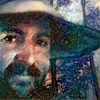White Paper
From Meditation to Flow
Without rituals, robes, incense, and bells, how can someone find a meditative moment? You don't need any of that. If you want to understand your own mind then simply observe it. Understanding ourselves is possible. It's very simple and pragmatic and there is a very simple methodology for doing it. In that understanding, we begin to see what creates suffering or stress vs what creates happiness and peace. When we see that we can make wiser choices. As we make wiser choices we become happier. As we become happier we make wiser choices.
Everyone has a wide range of thoughts that they can see. Nearly instantaneously they see how these thoughts are productive or otherwise. We all feel greedy, angry, jealous… negative emotions. We can see and feel directly their nature and what would be “good to let go of” or what would increase our happiness. It's not some theoretical practice or something we read in a book, but something we experience at the moment for ourselves. Choices become more obvious. It’s not, however, a quick flip of the switch. Meditation is a practice. Getting lost in emotion or thought pattern (a train of association) is common, what changes is our attention or observation, or mindfulness of these states. Understand that thought and emotion are present. This is a huge understanding or introspection. Meditation gives us the ability to see and be present for these things that are happening. That gives the space and the ability to not be carried away by them. In that space, we have the ability to choose whether we want to follow or let these things go.
All of these thoughts and emotions are impermanent. They are there for some time and then they disappear. We all understand this intellectually, but not many of us live that. We take our thoughts and emotions as something stable and reflections of who we are. As kids, how long did you hold on to the fact you didn't have the latest cool footwear or your friends were doing something that you just couldn't get into but still wanted to be included, or who was dating whom? Those long-ago thoughts all seem trivial now, but what are you now holding onto? Seeing the impermanence of these thoughts and emotions through repeated meditative practice begins to loosen the bonds.
How long can you stay angry? How long can you stay stressed? What are the thoughts that are feeding this feeling or thought? Just being able to identify this allows you the option of whether to feed into this pattern. Those of you who watched the video with Mingyur Rinpoche saw how he taught his “monkey” mind to come back and watch the breath. “Hello! Watch the breath.” Without the continuous feeding of the discursive thought or emotion… those monkey thoughts too will pass. The first step… watch your breath.
The rapidity of change happens much more quickly in the mind than in the body. So there could still be a residual physiological effect of the anger or stress, but it is still through observation of this complex of thought and emotion that we ultimately change the mind and body. However, if you are no longer interpreting and instead “simply” experiencing pure physiology then it's no longer anger. It's no longer jealousy or stress or whatever… it’s now just your body at that moment. That's how Aetna’s CEO, Mark Bertolini was able to get past the pain of his ski accident.
How are we relating those physical energetic sensations in our own lives to our thoughts? If reducing suffering is possible through the observation of our own minds… now the question is what is the right form of practice for you? There are many possibilities.
No matter what you practice...you will begin to discover some pretty incredible things. How skillful is your mind to be able to observe and not get caught up in thoughts too much until we learn to create a place of balance? That is where a teacher can be really helpful. A teacher can help one titrate the speed of those thoughts and emotions as they are coming up and stay balanced. The difficulties themselves are not the problem. They come up for everybody. It's ultimately our own ability to be with them in a skillful way or not. That’s the key.
First, we see things as being ordinary. We just see things arise without discernment. Then we see them with discernment. Then we see them as being empty and, in a sense, all equal. There needs to be an ethical foundation so that we do not get lost in this emptiness and start speaking or thinking unskillfully. What's the intention? A teacher can help.
So how do we apply this all to what we do? Being mindful/ highly focused on the task at hand gives each of us the ability to meet our challenges. Let your mind be fully engaged in that time and nothing else. Take awareness of your sense perceptions (similarly to Daniel Siegel’s meditation from the conference). Slowly and deliberately move. It all sounds like some mystical hysteria, right? I promise you still don't need those incense and crystals.
My father-in-law first turned me onto the concept of flow with a book by psychologist Mihaly Csikszentmihaly, called Finding Flow, and his research into what he called “optimum experience” many years ago. Flow is likened to a moving meditation. It's the product of about 150 years of research into a neuropsychological phenomenon where it has been observed every action and every thought leads effortlessly or flows fluidly and near perfectly into the next. Although there are some differences between meditation and flow, both are tools for cultivation. One that has studied internal martial arts or yoga could easily make an argument that the definition of flow and meditation are quite blurred. If you ever “lost” an afternoon due to a great conversation or just got so sucked into a project that everything else is forgotten, you have probably had this experience. In flow, our concentration gets so hyper-focused that everything, nonessential, just falls away. Action and awareness start to merge. Our sense of self and consciousness seems to vanish completely. Time dilates- which means it can slow down so you get that freeze-frame effect like you're in a car crash or it can speed up where 5 hours can pass by in what seems like 5 minutes. This is otherwise known as the “deep now”. As our brains lose executive function time conflates. The prefrontal cortex is saving energy and can't be bothered doing calculations right now. We begin to step into this timeless moment. This brings up interesting ideas on stress. Stress now is not present moment stress. Stress instead is what has already happened in the past or what could happen in the future. Since our brains are now processing this information in this deep now...performance goes up and those stresses go down. Studies on anxiety and PTSD have shown that five weeks of surfing (an activity that has tons of flow triggers) along with talk therapy can all but completely eradicate PTSD in soldiers. More recently the same study was done, but this time the trigger was meditation and practitioners got the same results in four weeks. That's amazing when you compare it to drug therapy, which does not have the same positive results.
When you snap into flow all of the stress hormones like cortisol leave the body and instead we get a calming effect and a nervous system reset; serotonin is one of the main protagonists of this reset. These flow states aren't just making you feel the better but massively amplifying performance.
Sky diving, surfing, free climbing, extreme action, and adventure sports are where athletes tap into flow. These are sports where life and limb are on the line. One would think this risk would be enough to make them the slowest growing category of sports. Instead, it's the opposite. In effect, it's because they are flow junkies. These athletes have figured out how to produce the state of flow absolutely and reliably simply because they have to. That is because at the level they are performing if they are not in the flow they are going to end up dead or seriously injured. We can then look at these athletes, look at them as case studies, and apply these findings across all domains of society.
Flow is the source code of basic and inborn motivation. It is the only time norepinephrine, dopamine, anandamide, serotonin, and endorphins are produced in such high concentrations and at the same time. This is why it can become the most addictive experience on planet earth. Flow is autotelic (an activity that has an end or purpose in and of itself). People seek out the state often at great costs. Unlike other addictions. It's an addiction that leads to a better version of yourself. Flow massively optimizes learning.
Flow shows up everywhere. Mihaly Csikszentmihaly found it in neurosurgeons, Navajo sheepherders, Detroit assembly line workers, Japanese motorcycle gang members, and on and on… there are many preconditions that help trigger the state. Risk is one of the main triggers. It however is not just a physical risk. You need risk because it triggers dopamine and that helps move you into the flow, but you can create the same trigger with emotional or creative risk. Getting into the flow state is totally different for everyone.
Ultimately anything that grabs and holds your attention is going to drive you into a flow state. The risk just happens to be a great one for that. However, you still can code your way into the flow, write the way into the flow, create your way into the flow, bag your way into the flow (actually Csikszentmihaly found people are seven times more creative in the flow state, and CEO’s have been measured as being five times more productive in their work week).
In flow, a large portion of the brain responsible for executive function, morale, will, and complex thinking… turns off and your subconscious takes over. Your subconscious is much more energy-efficient and is where some more of that performance boost comes from.
Mihaly Csikszentmihaly discovered that the people with the most flow in their lives were also the happiest. Why flow? Life satisfaction. With all of those happy brain chemicals flowing how can you not be satisfied?
One of my favorite all-time quotes is by, a major figure of the Rinzai school of Japan of the late 1500s and early 1600s, Takuan Soho. He is noted for many things including writing the Unfettered Mind (a zen manual of sorts for samurai) and having a pickle named after him. He said, “It is the very mind itself that leads the mind astray - of the mind, do not be mindless.” To this I say, find the beauty and significance of the moment. Don't let it just slip away.
Being mindful/ highly focused on the task at hand gives each of us the ability to meet our challenges. Let your mind be fully engaged in that time and nothing else. Take awareness of your sense perceptions. Slowly and deliberately move. Practice. Cultivate.
Where have you witnessed a coworker in a meditative or flow state? How can you foster or encourage more of these opportunities?
Like this project
Posted Jun 23, 2022
Exploration into finding,creating and fostering mindfulness among manager's for a small organic food supermarket chain.
Likes
0
Views
13




